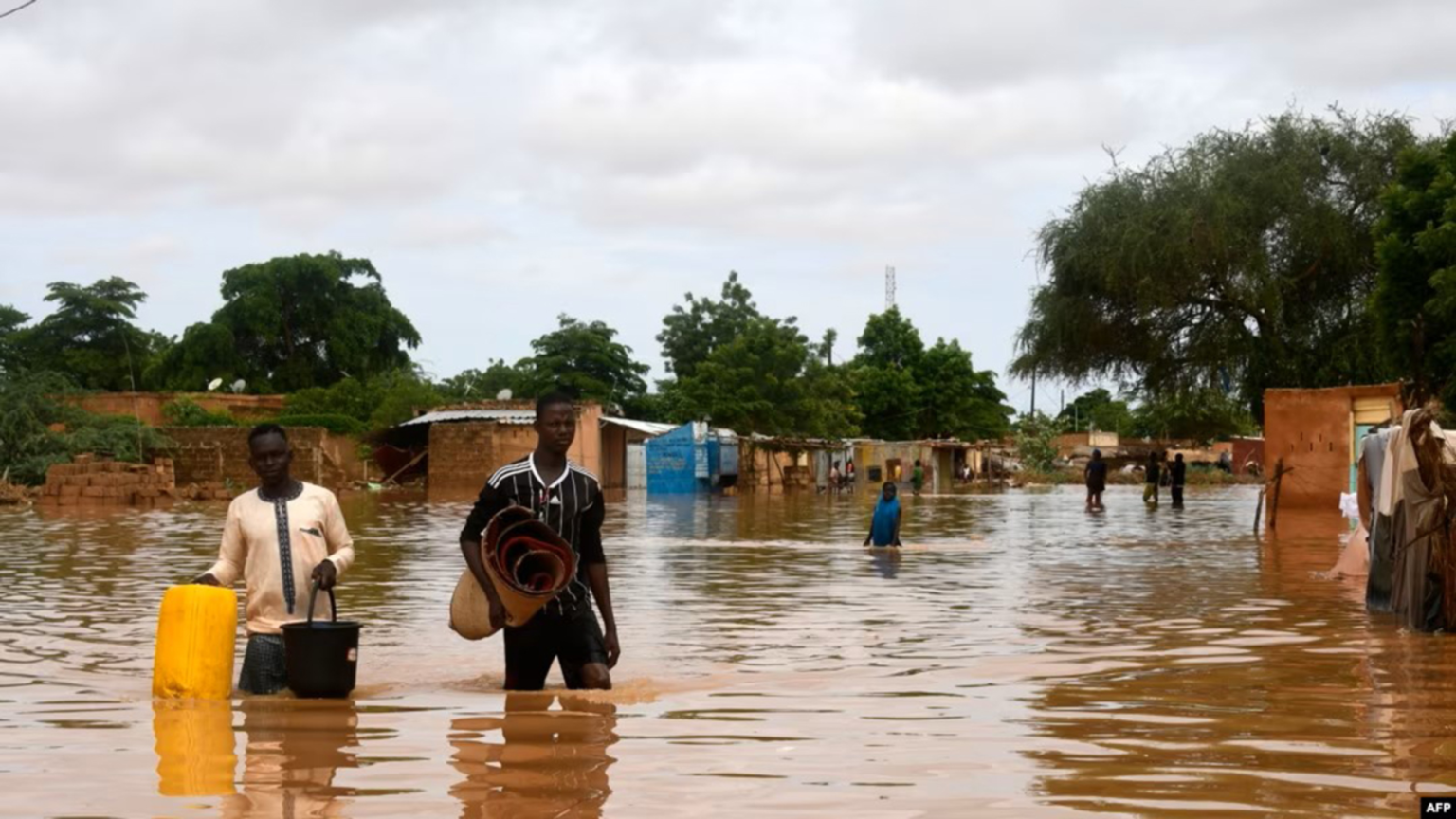At least 153 people in the Mokwa Local Government Area have died following the devastating floods that destroyed homes and displaced thousands of residents a few days ago.
The Niger State Emergency Management Agency (NSEMA) confirmed to Channels Television on Sunday that the death toll had risen sharply from 115 after floods hit the town of Mokwa.
NSEMA’s Acting Director General, Ibrahim Hussaini, said that more dead bodies were recovered late yesterday beneath the bridge in Mokwa and were subsequently buried this morning.
According to the latest figures released, a total of 3,018 individuals have been affected, comprising 503 households.
The number of injured persons stands at 11, while the floodwaters have damaged three bridges.
In Ndayako, another community affected by the flooding, there were no reported deaths, although 98 people were impacted, with 58 houses and 17 households sustaining damage.
Similarly, in Raba, no deaths were reported, but five houses were affected and one bridge was damaged.
The agency has continued to monitor the situation closely and is coordinating relief efforts with relevant authorities to assist affected communities.
Mokwa was hit by torrential rains Wednesday night into Thursday, with the flooding displacing more than 3,000 people, Husseini said.
There were 121 injured in the hospital, Adamu said, and more than 100 people were missing.
Nigeria’s rainy season, which usually lasts six months, is just getting started for the year.
Heavy rains and poor infrastructure lead to flooding that wreaks havoc every year, killing many.
Scientists have also warned that climate change is fuelling more extreme weather patterns.
We can’t give up
Roads were still inundated in Mokwa on Friday, an AFP journalist saw, with Husseini saying his team would need excavators to reach bodies feared buried under the rubble.
Residents in the town, around 350 kilometres by road from the capital Abuja, were still searching for relatives. In some cases, families were missing a dozen people.
“We can’t give up the search as long as there are families crying out,” said Adamu, the Red Cross chief.
“If there were some bodies that were carried away by the flooding, we’ll find them in the farmland on the Jebba side,” he added.
According to a tally provided by Husseini, 151 people were killed, 3,018 were displaced, 265 houses were destroyed, and two bridges were washed away in the busy market town.
Mohammed Tanko, 29, a civil servant, pointed to a house he grew up in, telling reporters Friday, “We lost at least 15 from this house. The property (is) gone. We lost everything.”
Floods in Nigeria are exacerbated by inadequate drainage, the construction of homes on waterways, and the dumping of waste in drains and water channels.
“This tragic incident serves as a timely reminder of the dangers associated with building on waterways and the critical importance of keeping drainage channels and river paths clear,” the National Emergency Management Agency (NEMA) said in a statement.
Complicating the search for missing persons was the presence of a large group of travellers staying overnight in a Mokwa mosque when the rains hit, Adamu said. The building collapsed, and it was still unknown where the people had been travelling from.
President Bola Tinubu said the disaster response was being aided by security forces.
Warning sounded
The Nigerian Meteorological Agency had warned of possible flash floods in 15 of Nigeria’s 36 states, including Niger state, between Wednesday and Friday.
In 2024, floods killed 321 people across 34 of Nigeria’s 36 states, according to NEMA.
Describing how she escaped the raging waters in Mokwa, Sabuwar Bala, a 50-year-old yam vendor, told reporters, “I was only wearing my underwear; someone loaned me all I’m wearing now. I couldn’t even save my flip-flops.”
“I can’t locate where my home stood because of the destruction,” she said.
AFP



